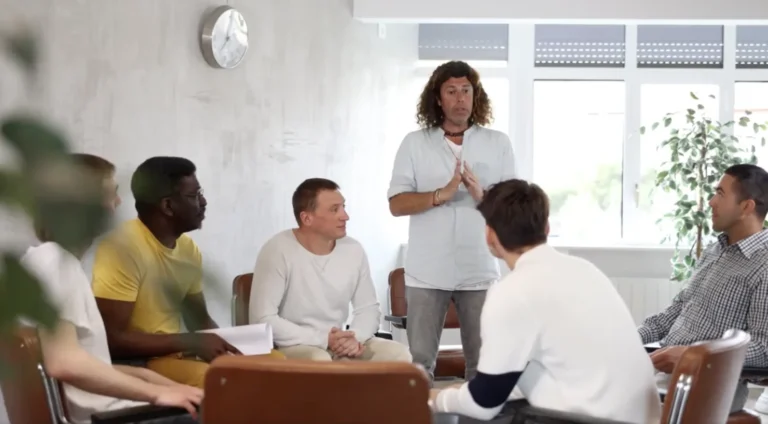Alcohol and Anxiety: Causes, Risks and Treatment

Increased alcohol consumption to self-medicate anxiety can create a harmful cycle, worsening symptoms over time. Many people turn to alcohol as a way to self-medicate their anxiety. Drinking can provide temporary relief by producing feelings of relaxation and euphoria. It can also lower inhibitions, making social situations feel more manageable for those with social anxiety.
- It works by increasing serotonin levels in the brain, which helps regulate mood and reduce anxiety.
- Anxiety as we commonly use it refers to feelings of worry, fear, or distress about something.
- Oar Health offers medication-assisted treatment for alcohol reduction, connecting you with medical professionals online.
- Alcohol consumption disrupts sleep patterns, leading to poor rest.
- Not to mention, if you’re a chronic heavy drinker, it can further deplete GABA and impact other neurotransmitters, too.
- Sleeping at least eight hours every night gives your brain a much-needed break.
The Relationship Between Alcohol and Anxiety

Sign up for free and stay up to date on research advancements, mental health tips, mental health in the news, and expertise on managing mental health. Plus, having friends or family members who are sober can help you cut back on alcohol consumption or get sober altogether. Relaxation techniques, such as practicing mindfulness, can help reduce panic, Oeswein says. Here are a few ideas for mindful breathing exercises to help you relax. Connecting with friends, family, or support groups provides emotional stability during recovery.
Panic Attack Symptoms
- There is also evidence that chronic alcohol misuse can lead to lasting anxiety, even after a person becomes sober.
- Fortunately, there are steps you can take to overcome and prevent this scenario.
- The simple answer is that alcohol is a liquid made from fermented sugar (ethanol) and when we mix this with other additives and compounds, we get different flavours and alcoholic beverages.
Managing panic attacks involves understanding triggers and reducing alcohol intake. Practicing relaxation techniques, maintaining a healthy lifestyle, does alcohol cause anxiety and seeking professional help can also be effective strategies for managing anxiety and preventing panic attacks. Alcohol consumption disrupts sleep patterns, leading to poor rest.
Anxiety Disorders Overview

Reactions like skin flushing or extreme fatigue could indicate an alcohol allergy, often accompanied by mood shifts and anxiety. Alcohol lowers inhibitions, leading to Alcoholics Anonymous actions or words you may regret, causing overthinking and anxiety the next day. Symptoms like nausea, dizziness, and headaches from hangovers often come with feelings of nervousness or unease.


During your assessment for a substance use disorder, your care providers may uncover one or more underlying mental disorders. https://ecosoberhouse.com/article/substance-abuse-counseling/ Fortunately, you don’t have to let panic attacks interfere with your chances of enjoying a successful recovery. You can learn various techniques for managing your panic attacks along with other challenging withdrawal symptoms.
- That means that if you have alcohol use disorder, you’re more likely to also have anxiety, and vice versa.
- Anxiety can become a health problem if it affects your ability to live your life as fully as you want to.
- When we drink, we become inebriated and ‘care-free’, which can cause us to say and do things we wouldn’t do when we’re sober.
- We offer emotional support, build self-awareness, and work with you to identify and challenge negative thought patterns.
That means that if you have alcohol use disorder, you’re more likely to also have anxiety, and vice versa. Research has found that panic disorder and alcohol use disorder often show up together. There’s also evidence suggesting a direct relationship between the two.
How Anxiety Can Affect Speech Patterns
Of these, 9.7% report using alcohol to help with their symptoms, a choice that sets off a vicious cycle. In this article, we dissect the link between alcohol, panic attacks, and mental health disorders. While panic attacks themselves are not life-threatening, seeking medical evaluation can provide reassurance and rule out other serious conditions. Additionally, for those experiencing frequent panic attacks due to alcohol use, it may be a sign that professional treatment is needed. Alcohol acts as a depressant, enhancing GABA’s calming effects initially.
Advanced Behavioral Health, LLP
It can temporarily reduce feelings of self-consciousness, worry, and anxiety, however, this relief is usually fleeting. If you suffer from alcohol-induced panic attacks or anxiety in general, reach out to Dr. Suzanne Feinstein at Advanced Behavioral Health. By understanding how the sympathetic nervous system can activate false alarms and trigger a panic attack, you can help manage the intensity of symptoms. By reframing the irrational fears that your body and mind are in danger, combined with some deep breathing exercises, and other CBT techniques, you can learn how to manage your anxiety effectively.